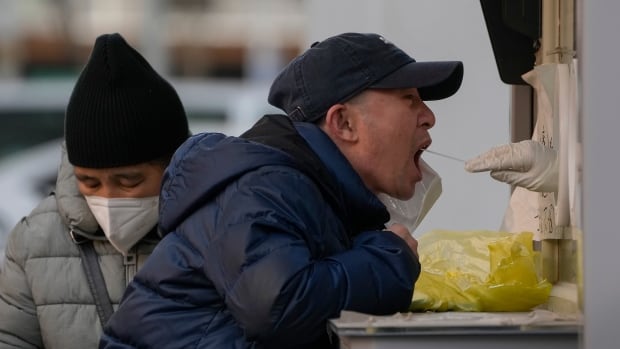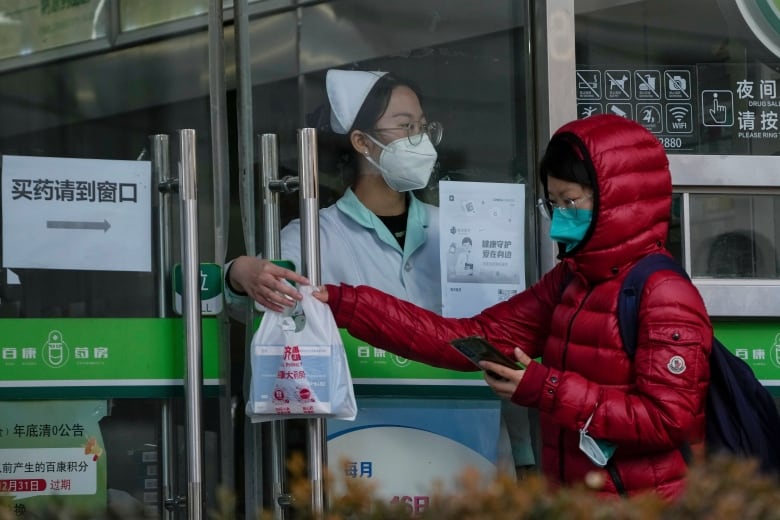
The World Health Organization (WHO) is calling on China to provide more detailed information of its evolving COVID situation to make a comprehensive risk assessment, as the country redefines its death toll definition amid a spike of cases.
Tedros Adhanom Ghebreyesus, director-general of the WHO, says the organization is “very concerned” over the country’s increased reports of severe disease.
“In order to make a comprehensive risk assessment of the situation on the ground, WHO needs more detailed information on disease severity, hospital admissions and requirements for ICU support,” he said at a press conference Wednesday.
“WHO is supporting China to focus its efforts on vaccinating people at the highest risk across the country, and we continue to offer our support for clinical care and protecting its health system,” said Ghebreyesus.
His comments come as Germany confirmed it has sent its first batch of BioNTech COVID-19 vaccines to China to be administered initially to German expatriates.
Narrow definition of death
On Wednesday, the country reported 5,241 as its overall death toll. A day prior, a Chinese health official said China only counts deaths from pneumonia or respiratory failure in its official count.
Deaths that occur in patients with pre-existing illnesses are not counted as COVID-19 deaths, said Wang Guiqiang, the head of infectious disease at Peking University’s No. 1 Hospital.

In most countries, including Canada and the U.S., guidelines stipulate that any death in which COVID-19 is a factor or contributor is counted as a COVID-19-related death. Wang’s comments on Tuesday clarified publicly what the country has been doing throughout the pandemic.
The clarification of how China officially records COVID-19 deaths comes as cases have soared across the country amid the loosening of restrictions.
Yet the overall count remains blurry, as China has stopped requiring daily PCR tests and many people are testing at home. Anecdotally, many people have fallen ill in cities such as Beijing and Shanghai.
China is ‘behind the curve’ on data reporting: WHO
When asked by reporters on whether Beijing is misrepresenting the situation, Mike Ryan, WHO’s executive director, says real-time hospital data, such as ER or ICU admissions, can be difficult for countries to collect and many countries have to learn how to do it effectively.
He says often hospital data is generated from patient discharge and insurance payments, so the data is always far behind.

“You might have reported three days ago that your hospital is OK. This morning it may not be OK because the wave has come and all of a sudden you have a very high force of infection,” Ryan said.
“So I wouldn’t like to say that China is actively not telling us… I think they’re behind the curve in what’s actually happening,” he said.
Ryan says the WHO wants to work with China to improve how it collects data around critical factors such as hospitalizations, the need for oxygen therapy, ICU admissions and death.
“It’s in the interest of the Chinese health system to know where the pressure is in the system at any one time. That allows you to move resources, move PPE, move health workers, move oxygen, move patients,” said Ryan.
“To manage that stress [in the health system] and be agile…You need to be able to react to what’s actually happening, not what you think is happening.”
Ryan says people who die of COVID die from many system failures given the severity of the infection and China’s narrow definition of death doesn’t include them.
“Limiting a diagnosis of death from COVID to someone with a COVID positive test and respiratory failure will very much underestimate the true death toll associated with COVID, he said.
“We don’t want the definitions to get in the way of actually getting the right data, so [on] that we will continue to work with our colleagues.”